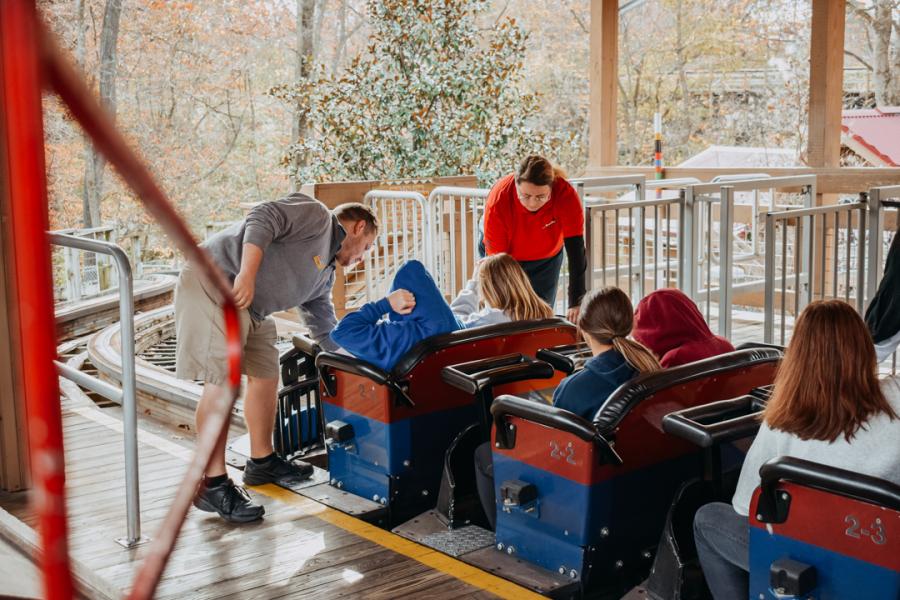With instances of unruly behavior at attractions on the rise, many parks are implementing chaperone policies to protect property and ensure guest safety.
Worlds of Fun in Kansas City, Missouri, is the latest in a growing number of amusement parks and attractions implementing chaperone policies. Brian McGannon, manager of communications and public relations at
Worlds of Fun, says the policy was a necessary response to an inciting incident. “We decided we needed to implement something that would allow our guests to have a better time in the park,” he shares. “We had it in place almost immediately following the incident and will be brand new for this season.” The park’s policy is “come with your kids, leave with your kids”—after 4 p.m., anyone under age 15 must be accompanied by a chaperone who is at least 21 years of age and presents a valid ID at ticket entry. “We felt that age 15 was the most appropriate number,” McGannon says.
Cedar Fair’s parks each have their own chaperone policies. “The safety of our guests and associates has always been our top priority. Over the past two years, we have seen increasing incidents of unruly and inappropriate behavior across our industry and at other major entertainment venues,” says Gary Rhodes, Cedar Fair spokesman. “We believe these changes will help ensure that our parks continue to provide a safe and positive environment where generations of families and friends come together to enjoy fun experiences and immersive entertainment.”
At Kennywood in West Mifflin, Pennsylvania, guests under 17 years of age must be accompanied by a chaperone who is at least 21 years of age and presents a valid ID after 4 p.m. The park implemented their policy in 2021 after an uptick in unruly behavior following its post-pandemic reopening. “One of the team members here, our Director of Maintenance, heard a park in the Northeast was doing this on Friday and Saturday nights,” says Mark Pauls, Kennywood general manager and director of theme parks for Palace Entertainment, Kennywood’s parent company.
Pauls notes the park’s security team has done a great job of enforcing the policy amid attempts by young people to get around the rule. “We made one modification—we would have kids who would recruit adults in the parking lot to accompany them into the park. Now, with any group over four, the chaperone has to sign for the kids.” The park is more aggressive about banning guests who provoke incidences—revoking season passes, issuing trespassing warnings, and more. These steps, combined with the chaperone policy, worked to curb bad behavior.
“You’re a private entity and can set whatever rules and regulations you want if it values the safety of your patrons,” says Chad Ayers, founder of active shooter and emergency response training company ProActive Response Group. “For the most part, kids will not act out with a parent or guardian present. The big question is, how will the policy be enforced, and how will you make sure the chaperone stays with the kids?” A chaperone can reduce or eliminate a multitude of disruptive or damaging behaviors. “The big part of this is going to be understanding what this looks like with the rules and regulations. Is the chaperone policy just to get in, or do the kids have to be accompanied by someone the entire time? Having a parent present is a big thing—it will cut down on a lot of things,” Ayers says.
Tom Jones, manager, loss control services with McGowan Allied Specialty Insurance in St. Petersburg, Florida, says when there are unruly guests in a park or midway, it affects everyone. “Fights, theft, and property damage are commonplace with problem guests. Events after unruly guests add costs to coverage. For example, a bunch of unruly guests are running down the midway, taking plush, food, and then run over an elderly adult and they break a bone. Who is responsible? Ultimately, you will be involved because you are there.”



